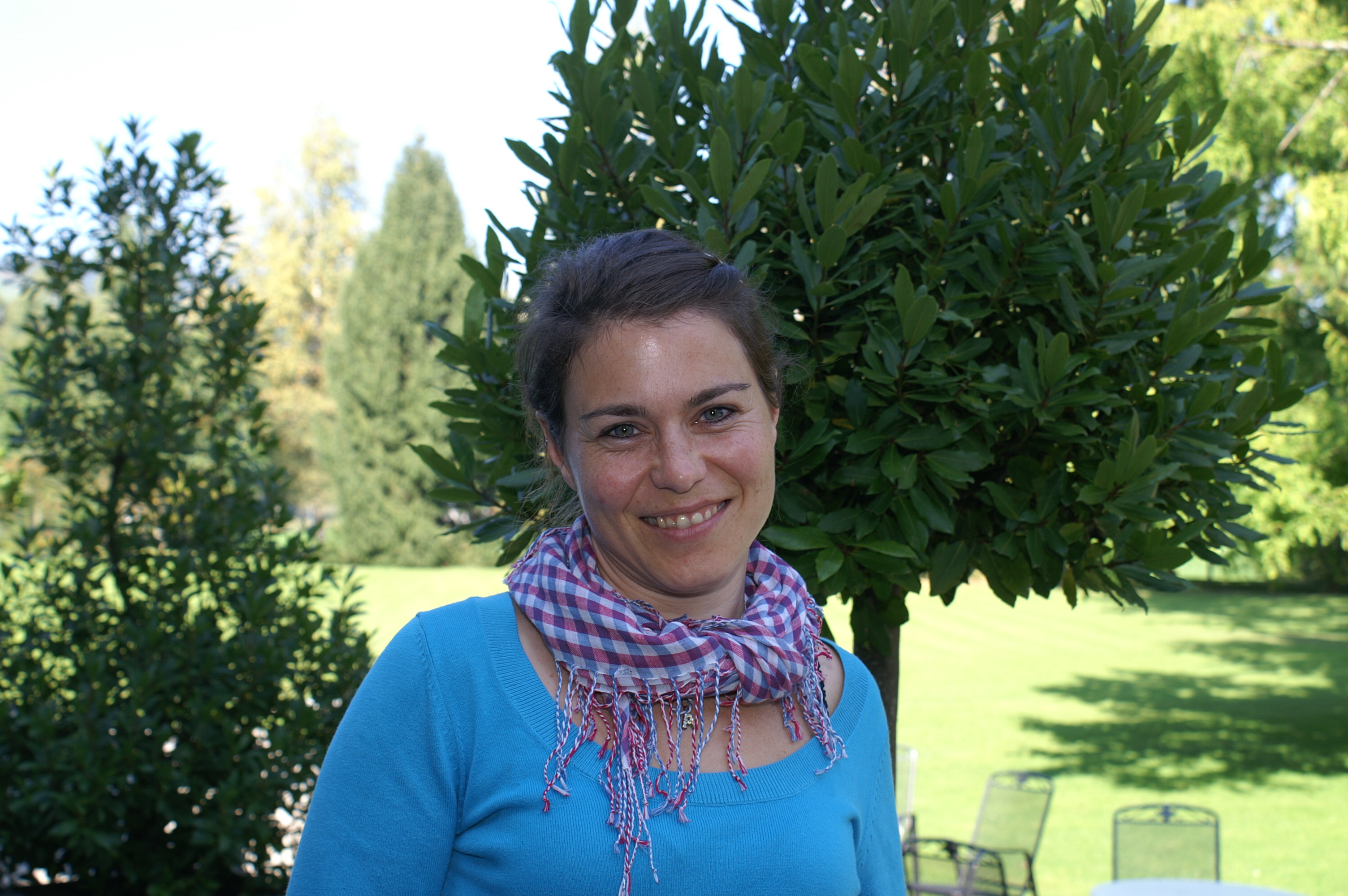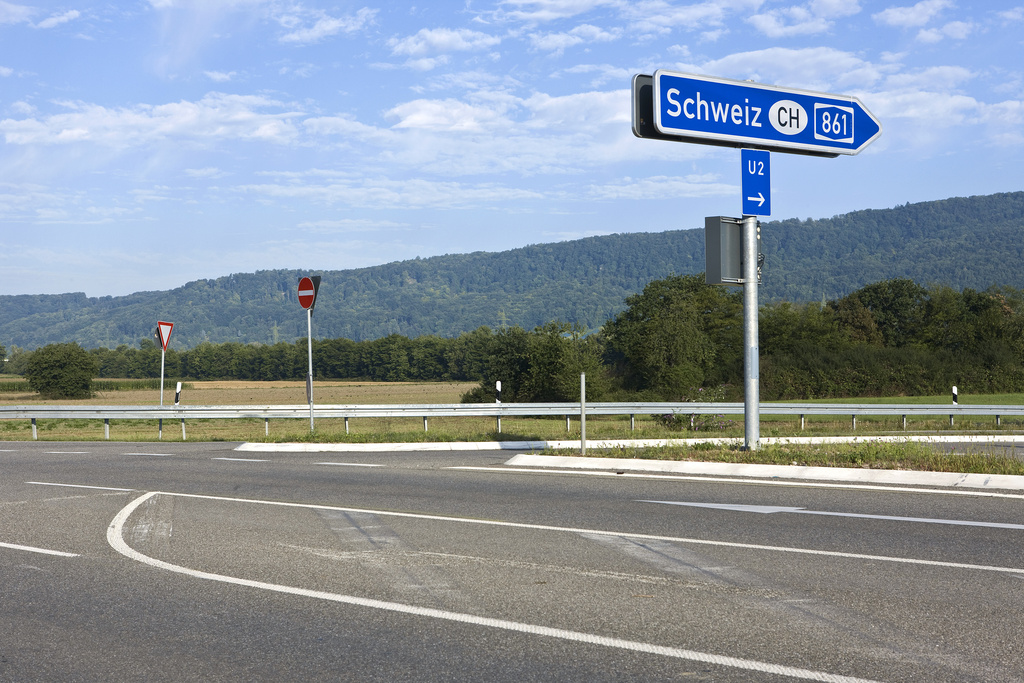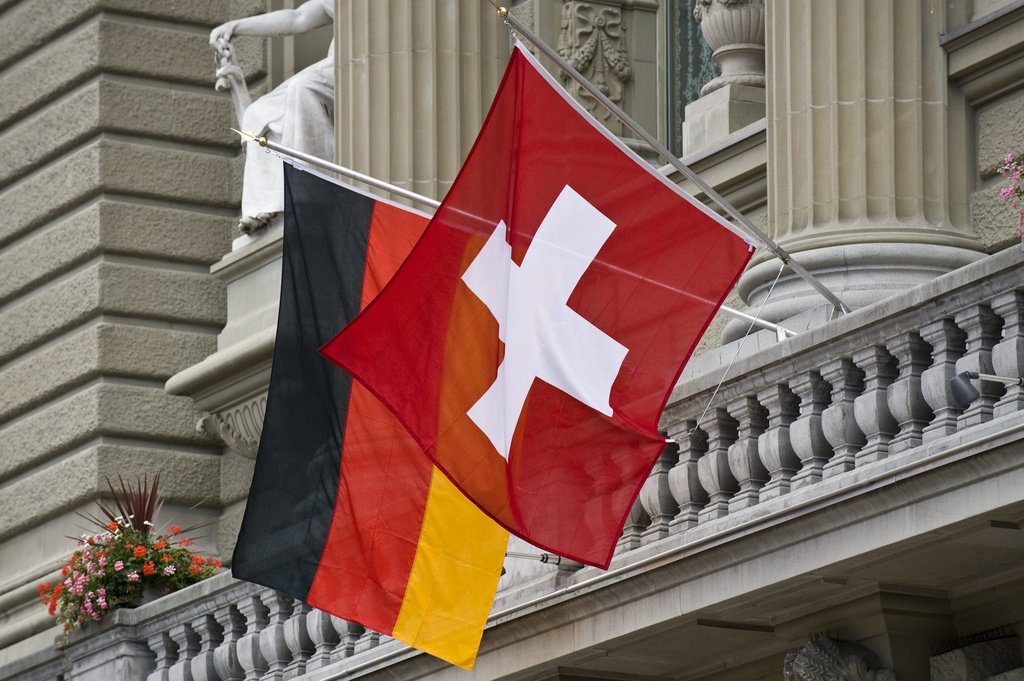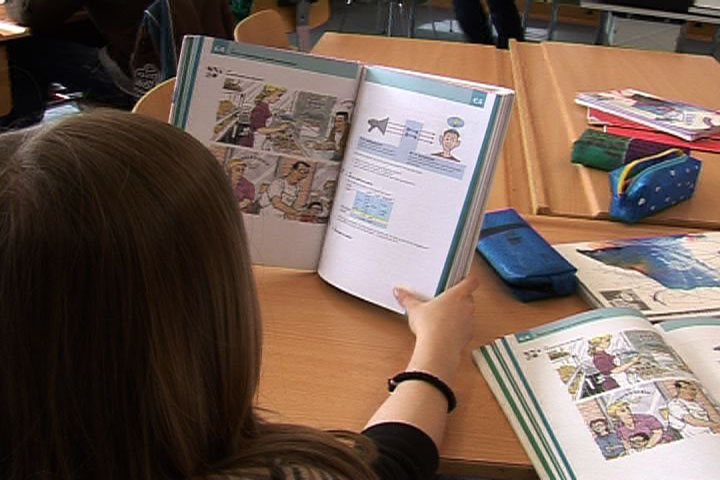Germans struggle to tune into Swiss wavelength

Germans often wonder why they are considered arrogant in Switzerland, when they say all they want to do is to express themselves clearly.
To help overcome misperceptions, the state-owned power company in canton Bern, BKW, has organised integration courses for the many Germans it has hired in recent years.
It’s not news that employees and managers have been moving to Switzerland from Germany. Since the Schengen agreement came into effect in 2008, making it easier for Swiss businesses to hire citizens from the European Union, strong demand for qualified staff has helped fuel migration from the north.
But despite being close cousins, cultural differences between German-Swiss and Germans are strong enough to complicate relations. One radio presenter was even forced off-air after listeners complained she didn’t sound Swiss enough, while the arrival of more Germans has been used as a political football to question the basis of the Schengen accord.
BKW, one of the companies that hired more than 100 Germans, asked these employees whether they would be interested in taking an in-house integration course.
“One of our managers wanted to know if there were courses to explain how the Swiss think and how to behave in Swiss society,” said Markus Oppliger, an employee development specialist at BKW.
“We were lucky enough to find an external partner and demand has been so strong that we have had to organise the course four times.”
Direct style
During the course, some of the Germans could not understand why their behaviour was considered arrogant.
“The perception that people are arrogant comes from the direct way Germans speak with each other,” explained Christian Leschyk, the course organiser and a German citizen who has lived in Switzerland for 17 years.
“The style, the formulation, the way someone expresses themselves and the choice of words all play a role in perception.”
Just asking for a bread roll the same way you would ask in Germany will get people’s hackles up in Switzerland. Both the choice of words and the style play a role in this case, he said.
During one of the classes that swissinfo.ch attended, Leschyk advised his countrymen on when to and when not to use High German as it can make a difference.
“I noticed people are more relaxed with me when I let some of my Rhineland dialect influence my speaking,” admitted one participant. “It sounds less pretentious, closer to people’s own way of speaking.”
“Let them talk”
For Germans, moving to Switzerland also requires changes in the way they work.
“When someone doesn’t repair something properly or makes a mistake, it’s still a mistake,” said another participant.
“There’s little room for diplomacy,” admitted another, when asked how he went about criticising members of his Swiss team.
The course participants suggested an indirect approach rather than starting with immediate criticism, or paraphrasing. Leschyk thought otherwise. “Let them talk,” he proposed.
This isn’t so easy to accept for some. “I am a specialist and as such I am responsible,” said one employee. “If I know exactly what is wrong, I can’t let myself be bogged down in a discussion.”
Leschyk then explained that the Swiss were used to giving their opinion.
“Just thinking that there is only one way to solve a problem will get you nowhere in Switzerland,” he said.
“A polite request replaces a direct order in Switzerland, it has the same value. It’s not necessary to add anything, but rather ask for some feedback to make sure you have been understood.”
This advice left one of the managers sceptical. “When something is simply not done right, it is hard to criticise it in an indirect fashion,” he pointed out.
Less friendly
The German language had become less friendly since it was reformed a few years ago, according to Leschyk. Expressions such a “could you” or “may I please ask you” were out-dated in Germany, but still commonly used in Switzerland.
Employees were also advised not to use the word “must”. “It’s not a good word in Switzerland, even if it not used the ‘wrong’ way,” Leschyk warned.
The BKW staff were more relaxed when it came to discussing the use of Swiss expressions. Many of them found it uncomfortable to use local dialect at all costs.
But Leschyk advised them to make an effort and to use the standard Swiss work and daily life expressions, using the example of Deutsche Bank’s Swiss CEO, Josef Ackermann. When he took over the bank, Ackermann had to drop the Swiss terms he was using when he realised his staff found them funny.
The power company personnel admitted to occasional trouble, resorting to search engines to come to grips with Swiss words and expressions.
Regional sensibilities
Regional sensibilities were another factor that should be taken into account, Leschyk said.
“You underestimate local pride. When you are doing business, it’s even good for a foreigner to bring a local gift along the first time he is invited to a Swiss person’s home.”
He added that Germans shouldn’t look down on regionalisms, ending his course with a quick story.
“Two Germans sit down next to each other. One is from Swabia, the other from Baden, and soon they are fighting! Both neighbours – and both Germans.”
Germans are the second largest group of resident foreigners in Switzerland.
At the end of 2010, there were more than 263,000 Germans residing on Swiss soil.
They make up nearly 15 per cent of the total resident foreign population (1.766 million).
The Bern power company (Bernischen Kraftwerke – BKW) is one of Switzerland’s major power producers with over SFr3 billion ($3.28 billion) in annual revenue.
It employs more than 2,800 employees, including over 100 Germans.
The company is also a shareholder in various power projects in Germany and Italy.
BKW is a leading producer of renewable energy, including solar, wind and water power as well as from biomass.
It is also the owner the ageing Mühleberg nuclear plant near Bern, which has required upgrades and repairs to improve safety.
(Adapted from German by Scott Capper)

In compliance with the JTI standards
More: SWI swissinfo.ch certified by the Journalism Trust Initiative





You can find an overview of ongoing debates with our journalists here. Please join us!
If you want to start a conversation about a topic raised in this article or want to report factual errors, email us at english@swissinfo.ch.